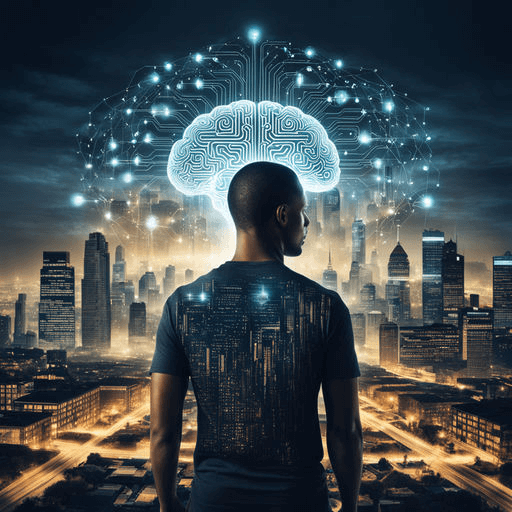Mental stimulation plays a crucial role in maintaining and enhancing cognitive health. Just like physical exercise strengthens muscles, engaging your brain in challenging and stimulating activities helps to improve brain function, boost memory, and protect against cognitive decline. In today’s fast-paced world, it’s essential to actively work on stimulating the brain to keep it sharp, alert, and functioning at its best.
This blog explores why mental stimulation is key to cognitive health, how it impacts the brain, and some effective ways to incorporate mental exercises into your daily life.
How Mental Stimulation Affects the Brain
The brain is a dynamic organ that continuously evolves and adapts in response to new experiences and challenges. This ability, known as neuroplasticity, refers to the brain’s capacity to form and reorganize synaptic connections. Mental stimulation promotes neuroplasticity by encouraging the brain to form new neural connections and pathways, which can improve cognitive function and protect against age-related cognitive decline.
When we engage in mentally stimulating activities, the brain is forced to learn, adapt, and grow. This process strengthens neural pathways and improves overall brain health by:
- Enhancing Memory: Challenging the brain with new information and tasks helps to strengthen memory retention and recall.
- Boosting Problem-Solving Skills: Mental stimulation improves critical thinking and problem-solving abilities by training the brain to think creatively and adapt to new situations.
- Reducing Cognitive Decline: Keeping the brain active can help reduce the risk of cognitive decline associated with aging and conditions like dementia and Alzheimer’s disease.
Benefits of Mental Stimulation for Cognitive Health
- Improved Memory Retention
Mentally stimulating activities encourage the brain to absorb and retain information more effectively. Whether it’s learning a new skill, solving puzzles, or reading, these activities strengthen the connections in the brain that are responsible for memory. This is especially important as we age, as memory decline is one of the earliest signs of cognitive aging. - Increased Focus and Attention
Mentally stimulating tasks require focused attention, which can train the brain to concentrate better over time. Focusing on tasks like playing strategy games, solving math problems, or learning new languages helps improve sustained attention and prevent mental fatigue. - Boosts Creativity and Problem-Solving
Engaging in activities that challenge your brain’s creativity and logic, such as playing chess, painting, or solving riddles, helps improve your brain’s ability to process information and come up with innovative solutions. These tasks stimulate the brain’s problem-solving areas, helping you approach challenges from different angles. - Delayed Cognitive Aging
Mental stimulation has been linked to delayed cognitive decline. Regularly engaging the brain in activities that challenge it can help build cognitive reserve—a backup system of brain connections that compensate for age-related changes in brain function. Studies suggest that individuals who engage in mentally stimulating activities are less likely to develop dementia or Alzheimer’s disease later in life. - Improved Cognitive Flexibility
Cognitive flexibility refers to the brain’s ability to adapt to new information and switch between different tasks or ideas quickly. Mental stimulation, such as engaging in puzzles or learning new skills, can improve cognitive flexibility, making it easier to multitask and solve problems more efficiently.
Best Activities for Mental Stimulation
There are countless ways to keep your brain engaged and mentally stimulated. Here are some of the most effective activities that can boost cognitive health:
1. Puzzles and Brain Games
Playing puzzles, Sudoku, crosswords, or logic games like chess stimulates different areas of the brain. These activities challenge memory, attention, and reasoning skills, helping to strengthen neural connections.
2. Learning a New Skill
Learning a new language, musical instrument, or hobby keeps the brain engaged. It forces your brain to adapt and form new neural pathways, improving overall cognitive flexibility and memory retention.
3. Reading
Reading is one of the simplest yet most effective ways to keep your brain active. It engages various parts of the brain, improves focus, and expands knowledge. Whether it’s novels, nonfiction, or research, reading regularly can help sharpen cognitive abilities.
4. Physical Exercise
Physical activity, particularly aerobic exercise, promotes mental stimulation by improving blood flow to the brain, which boosts cognitive function. Activities such as yoga, tai chi, or dancing also require concentration and coordination, which helps stimulate mental processes.
5. Social Interaction
Engaging in meaningful conversations and social activities stimulates the brain by encouraging critical thinking, empathy, and active listening. Social engagement is associated with improved cognitive performance and a lower risk of dementia.
How NTRY Can Support Mental Stimulation
While mental exercises and activities are essential for cognitive health, supplements like NTRY can further enhance brain function. NTRY is packed with key ingredients such as Citicoline, L-Theanine, and L-Tyrosine, all of which are known for their cognitive-boosting properties. These ingredients help improve focus, memory, and mental clarity, allowing you to maximize the benefits of mentally stimulating activities.
By combining mental stimulation with NTRY, you can optimize brain function, stay sharp, and maintain cognitive health throughout your life.
Conclusion
Mental stimulation is an essential part of maintaining cognitive health, regardless of your age. By regularly engaging your brain in challenging and stimulating activities, you can enhance memory, increase focus, and delay cognitive decline. Whether it’s through puzzles, learning new skills, or social interactions, the key is to keep your brain active and engaged.
Incorporating NTRY into your daily routine can further support your cognitive function, giving you the mental edge you need to perform at your best.



